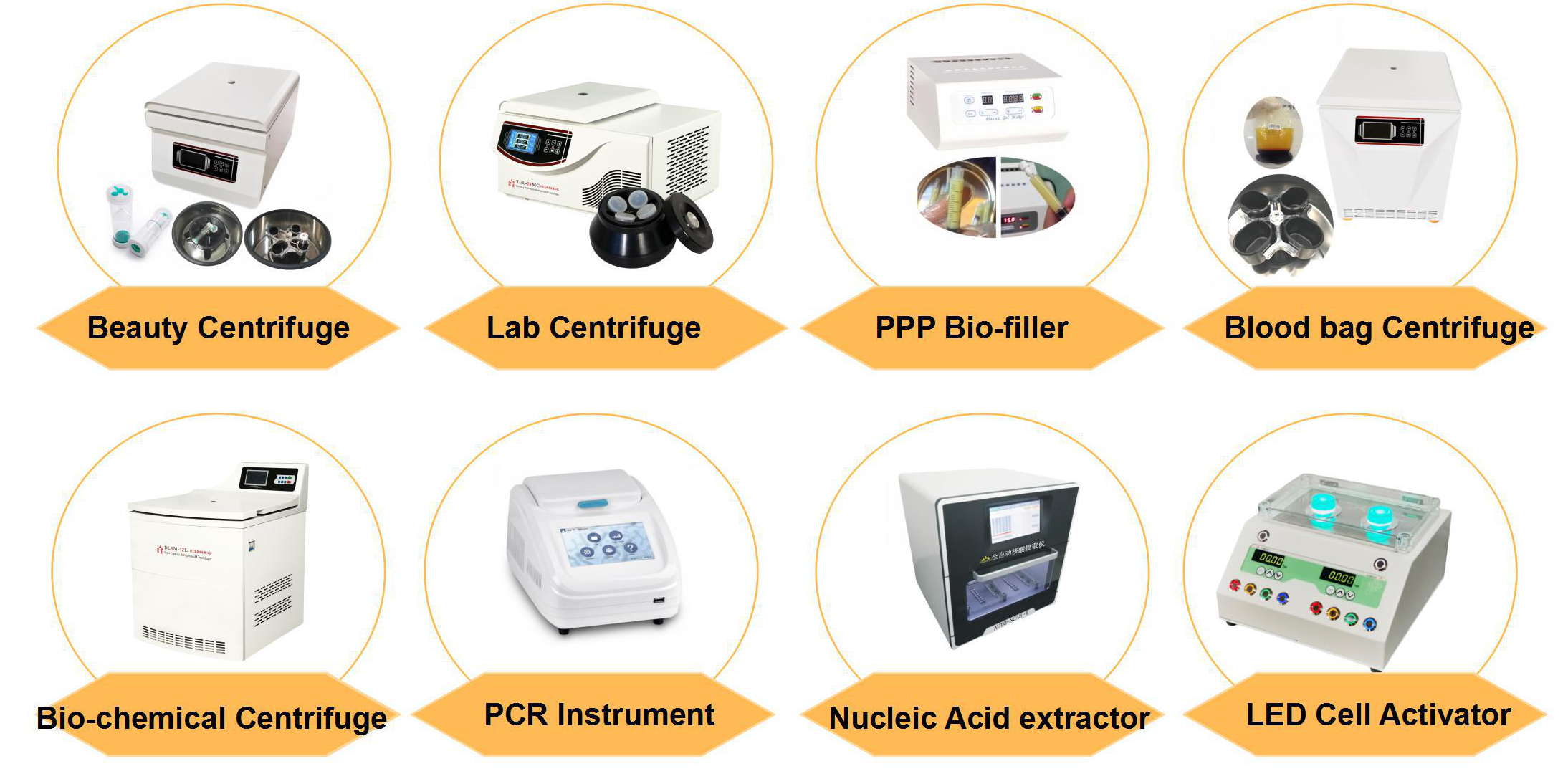
How many types of centrifuge, and their advantage?
2024-07-13 21:36A centrifuge is a laboratory or industrial device used to separate components of a mixture based on their density by spinning the mixture at high speed. The principle behind a centrifuge is centrifugal force, which is the outward force exerted on a rotating object. As the mixture spins, denser components move outward to the periphery of the container, while less dense components remain closer to the center. There are several types of centrifuges, each designed to meet specific needs and applications. In today's post I will introduce an overview of the main types of centrifuges, along with their advantages:
1. Microcentrifuges
Description: Microcentrifuges are small, compact centrifuges used for spinning small volumes of samples (typically 0.2 to 2.0 mL) in microcentrifuge tubes.
Advantages:
Compact Size: Ideal for labs with limited space.
High Speed: Capable of high rotational speeds, allowing rapid separation.
Versatility: Suitable for a variety of molecular biology applications, including DNA, RNA, and protein studies.
2. Benchtop Centrifuges
Description: Benchtop centrifuges are versatile units used for a wide range of applications. They can handle larger volumes than microcentrifuges and often come with different rotor options.
Advantages:
Versatility: Can be used for many applications in clinical, research, and industrial labs.
Multiple Rotor Options: Accommodate different tube sizes and types.
Ease of Use: User-friendly interfaces and programmable settings.
3. High-Speed Centrifuges
Description: High-speed centrifuges are used for applications requiring higher speeds (up to 30,000 RPM or more).
Advantages:
High Throughput: Efficiently separates samples with greater speed.
Multiple Applications: Suitable for cell fractionation, protein purification, and more.
Advanced Features: Often include temperature control and programmable protocols.
4. Ultra-Centrifuges
Description: Ultra-centrifuges can reach extremely high speeds (up to 150,000 RPM), enabling the separation of very fine particles.
Advantages:
High Resolution: Capable of separating very small particles such as viruses, ribosomes, and macromolecules.
Precision: Highly precise control over speed and temperature.
Advanced Separation: Essential for advanced research in molecular biology and biochemistry.
5. Refrigerated Centrifuges
Description: Refrigerated centrifuges are equipped with cooling systems to maintain low temperatures during operation.
Advantages:
Temperature Control: Protects heat-sensitive samples during centrifugation.
Wide Application Range: Used in clinical labs, biochemistry, and molecular biology.
Consistent Performance: Ensures sample stability and reproducibility.
6. Clinical Centrifuges
Description: Designed for routine use in medical laboratories, clinical centrifuges are used for processing blood and urine samples.
Advantages:
Specialized Design: Tailored for clinical applications, such as blood separation.
Ease of Use: Simple operation suited for high-throughput clinical environments.
Reliability: Provides consistent and accurate results.
7. Industrial Centrifuges
Description: Used in industrial processes, these centrifuges handle large volumes and are used in chemical, pharmaceutical, and food industries.
Advantages:
Large Capacity: Suitable for large-scale separations.
Durability: Built to withstand continuous operation in industrial settings.
Efficiency: Facilitates high-throughput processing.
8. Hematocrit Centrifuges
Description: Specialized centrifuges used to measure the volume percentage of red blood cells in blood.
Advantages:
Specialized Function: Specifically designed for hematocrit determinations.
Precision: Provides accurate and rapid results.
Clinical Relevance: Essential for diagnosing and monitoring various medical conditions.
9. Cytocentrifuges
Description: Used to prepare cell samples for microscopic examination, cytocentrifuges concentrate cells onto a slide.
Advantages:
Enhanced Cell Recovery: Maximizes cell yield for analysis.
Sample Preparation: Ideal for cytology and pathology labs.
Ease of Analysis: Facilitates detailed microscopic examination of cell morphology.
10. Continuous Flow Centrifuges
Description: Designed for continuous processing of large volumes of samples, often used in industrial and large-scale laboratory settings.
Advantages:
Continuous Operation: Enables ongoing processing without the need for stopping and starting.
High Efficiency: Suitable for large-scale separations and industrial applications.
Automation: Often integrated with automated systems for enhanced productivity.
Hot selling centrifuges you may interested in
